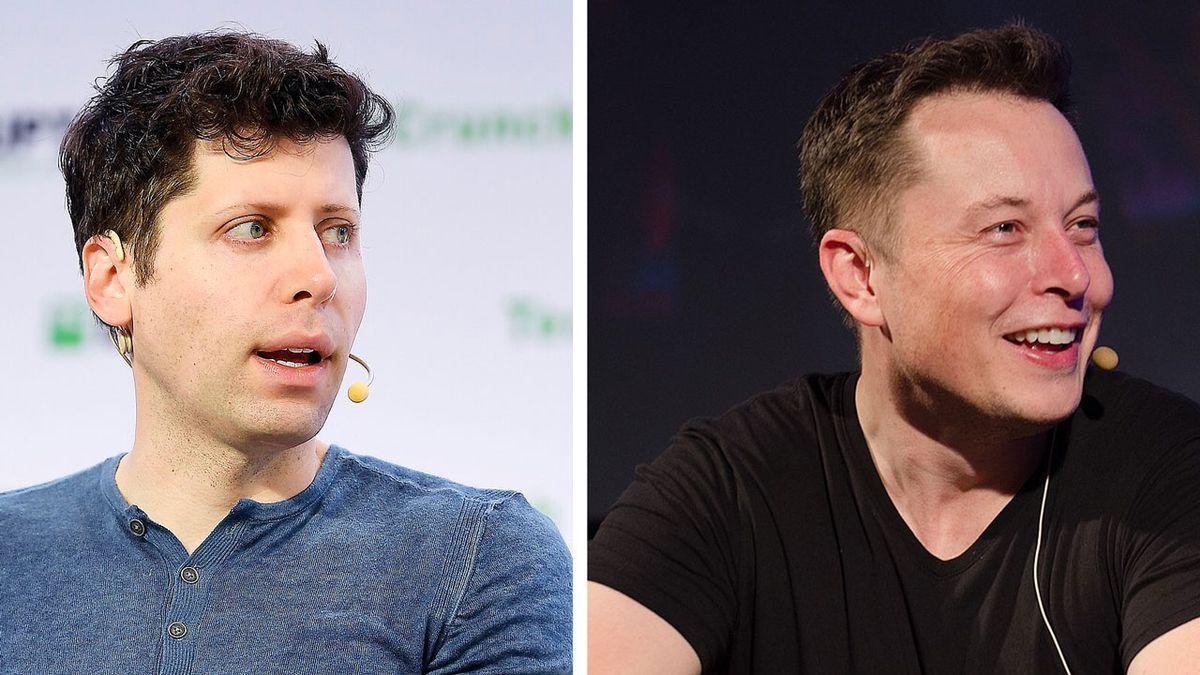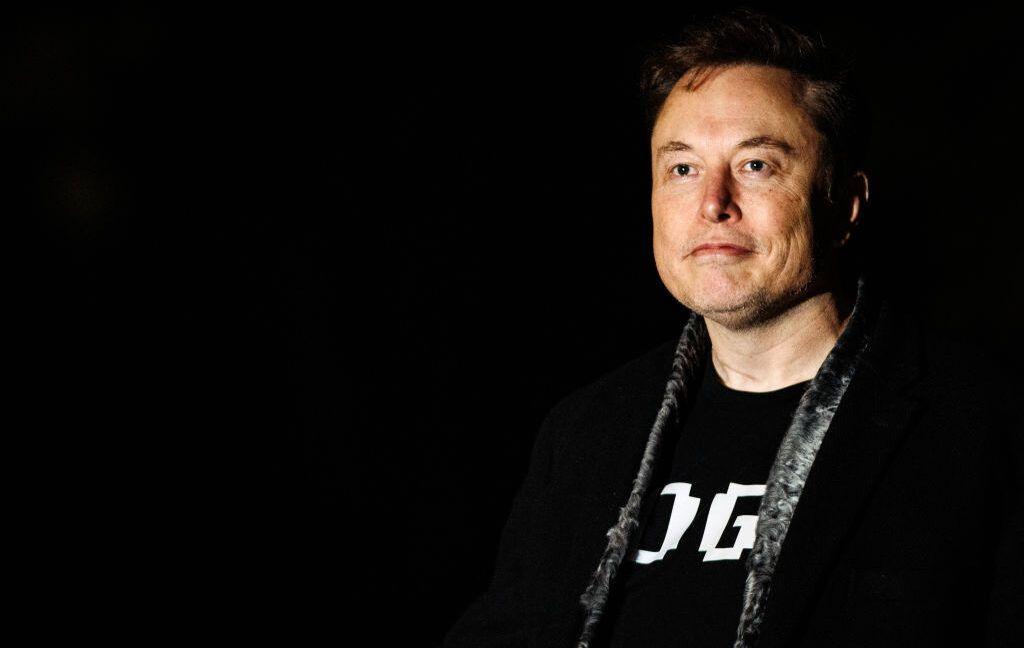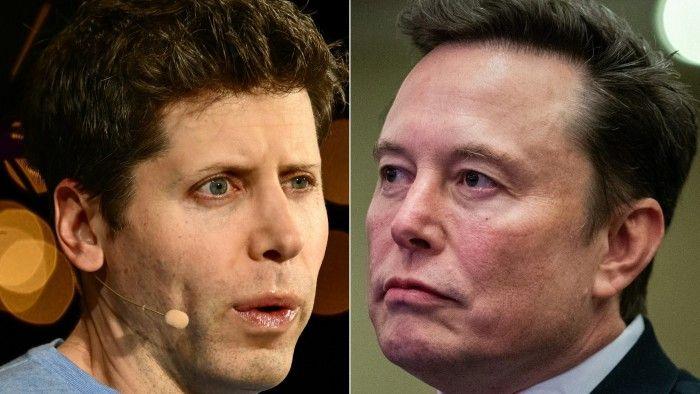Musk vs. Altman: Tesla Refund Dispute Reignites OpenAI Feud as Legal Battle Continues
4 Sources
4 Sources
[1]
Elon Musk accuses Sam Altman of stealing a nonprofit after Tesla Roadster refund dispute
Serving tech enthusiasts for over 25 years. TechSpot means tech analysis and advice you can trust. Sounding off: Elon Musk and Sam Altman's most recent public spat that started over a Tesla Roadster refund has turned into a mudslinging match. Musk claims Altman did receive a refund and "stole a non-profit," while the OpenAI boss said his rival wanted Tesla to take over OpenAI, meaning "no nonprofit at all." The fight started last week when Altman posted three screenshots: a confirmation of his $50,000 reservation for a Tesla Roadster in July 2018, an email to Tesla he sent asking for a refund, and an image of the email message bouncing. Musk responded to Altman's post a day later with a single line that read, "You stole a non-profit." He followed that up soon after with a reply that claimed the email issue was fixed and Altman had received his refund. Musk added that Altman's failure to mention these facts was "in your nature." Altman and Musk have been at each other's throats for a long time now. The world's richest man was one of the co-founders, backers, and initial board members of OpenAI in 2015, departing the company in 2018 over what he said was a conflict of interest with Tesla. In 2024, Musk filed a lawsuit against Altman, OpenAI, and others claiming the company had abandoned its founding mission of developing AI for the benefit of humanity and was instead moving toward profit-maximization. OpenAI responded to the suit by publishing emails that Musk sent during his time at the company. The messages show he supported the firm's plan to create a for-profit arm and encouraged it to raise at least $1 billion in funding. He also suggested a merger with "cash cow" Tesla if OpenAI wanted to have any chance of competing against Google. Altman reminded Musk of these words in his recent reponse. Musk withdrew the OpenAI suit in June 2024, but filed a new lawsuit in August that year repeating the same claims. It was later expanded to include additional defendants, including Microsoft. In March, Judge Yvonne Gonzalez Rogers rejected Musk's bid for a preliminary injunction that would have blocked OpenAI's transition from a nonprofit. Part of the case is still set to go to jury trial in spring 2026. OpenAI now operates under a hybrid structure: it's still majority-controlled by the nonprofit, but runs its business through a for-profit arm called OpenAI LP. This setup lets the company raise money and form partnerships - most notably with Microsoft - while claiming to stay aligned with its original mission of developing AI that benefits everyone. Musk filed a separate lawsuit in August against OpenAI and Apple alleging their exclusive ChatGPT integration violates antitrust laws.
[2]
Musk on OpenAI's 'betrayal': Says firm twisted the meaning of its name, strayed from its purpose
Elon Musk criticised OpenAI on the All-In Podcast, calling its shift from non-profit to for-profit a violation of its founding principles. He said the company twisted the very meaning of its name. Musk, who was one of the founders of OpenAI, left the firm in 2018. During a conversation on the All-In Podcast, billionaire Elon Musk discussed several topics: from OpenAI's shift to a for-profit model to his future at Tesla, Grokipedia, and more. Speaking about OpenAI's transformation, which he strongly opposed, Musk reiterated his long-standing view that the firm's conversion from a non-profit to a for-profit entity was illegal. "There's, like, a mountain of evidence that shows OpenAI was created as an open source nonprofit. That's the exact description in the incorporation documents," he said. "In fact, the incorporation documents explicitly say that no officer or founding member will benefit financially from OpenAI, and they've completely violated that." Musk further claimed that once the company realised the commercial potential of its work, it redefined the very meaning of its name from "open source" to "open for all." "I came up with the name. Yeah, that's how I know," he said. Asked if open-sourcing the company's models was the right approach, Musk said that was the organisation's original purpose. He also remarked that some of the best open-source AI models currently come from China. However, Musk noted that his own AI venture, xAI, would continue open-sourcing its Grok models, adding that "Grok 2.5, which is open sourced, is very good." In contrast, he criticised OpenAI's open-source releases, claiming, "They open-sourced a broken, non-working version of their models." He even went so far as to say that no one uses these models. Founded in 2015 by Musk, Sam Altman, and nine others, OpenAI began as a non-profit research lab dedicated to transparency and the responsible development of artificial intelligence for the benefit of humanity. Musk initially contributed $45 million to help launch it. However, in 2018, he left the company after disagreements over its direction. He later filed a lawsuit against OpenAI and Altman in February 2024, accusing them of abandoning the organisation's founding mission. Though he briefly withdrew the case in June, he refiled it two months later with the same claims. In February 2025, Musk led a consortium of investors offering $97.4 billion to take control of OpenAI's non-profit parent organisation, with the stated goal of restoring its original mission. The company however, rejected the offer. Asked about the case's progress, Musk said, "I believe that will go to a jury trial in February or March. And then we'll see what the results are there."
[3]
Musk vs. Altman: OpenAI Feud Fuels AI Arms Race and Startup Ecosystem Shifts
From court battles to infrastructure ventures, this conflict underscores the high stakes of artificial intelligence leadership and the growing urgency of acquiring both computational and strategic assets. In 2015, Musk and Altman established OpenAI with a unique vision in mind. They planned to make AI the spearhead of all technological advancements and ensure that the development of AI is both safe and more accessible. Together, they provided several advancements in the field of AI. Soon, things changed, and Altman's and Musk's paths started to diverge when OpenAI made its 2019 pivot from a nonprofit to a hybrid for-profit model. While Musk was the first to appreciate profit-driven business models, he was later heard rebuking OpenAI for straying from its mission of making AI the people's property. This resulted in a legal battle that involved suits, with Musk filing a case against OpenAI for fraud and breach of contract. In turn, OpenAI accused Musk's xAI of stealing its employees and engaging in actions such as disrupting the order of trade secrets related to its AI chatbot, Grok. Both have denied any of the allegations, terming the suit a business dispute that echoes the broader competitive war among AI firms.
[4]
Musk vs Altman flares up again after Ilya Sutskever confirms OpenAI's near-merger with Anthropic
The proposed merger reportedly collapsed due to practical challenges but exposed deep divisions within OpenAI's leadership. OpenAI CEO Sam Altman and Elon Musk are back in the spotlight, and this time tensions have risen as a result of new revelations about OpenAI's internal turmoil during the 2023 leadership crisis. Both fired back on X (formerly Twitter) after excerpts from former OpenAI chief scientist Ilya Sutskever's recent deposition surfaced online, revealing behind-the-scenes drama during Altman's brief ouster. In a series of posts on X, Musk accused Altman of theft, referring to alleged profiteering from OpenAI's mission, while Altman responded by claiming Musk once wanted Tesla to buy OpenAI outright. The OpenAI CEO appeared to downplay the spat, concluding with, "Can't we all just move on?" Musk, on the other hand, referred to Sutskever's October 2025 deposition as "a tale in 52 pages." Sutskever's testimony, which was part of Musk's ongoing lawsuit against OpenAI, revealed that the company's board considered a merger with rival AI startup Anthropic shortly after Altman's abrupt dismissal in November 2023. According to the deposition, board member Helen Toner was approached or contacted by Anthropic on November 18, one day after Altman and OpenAI president Greg Brockman were removed. According to reports, discussions included a proposal for Anthropic to take over OpenAI's leadership structure. Sutskever, who opposed the idea, said Toner appeared more open to it. The talks, however, collapsed due to "practical obstacles," capping off one of the most chaotic weeks in OpenAI's history. The board's decision to fire Altman, citing a loss of confidence, sparked widespread criticism, with nearly 700 of OpenAI's 770 employees threatening to leave unless he was reinstated. Under pressure from Microsoft and key investors, the board reversed its decision within days, restoring Altman and Brockman to their positions on November 22.
Share
Share
Copy Link
The ongoing feud between Elon Musk and Sam Altman escalated over a Tesla Roadster refund dispute, with Musk accusing Altman of 'stealing a nonprofit' while their legal battle over OpenAI's transformation continues toward a 2026 jury trial.
Tesla Refund Sparks Fresh Accusations
The long-standing feud between Elon Musk and OpenAI CEO Sam Altman has reignited over what began as a seemingly mundane Tesla Roadster refund dispute. The conflict escalated when Altman posted screenshots on social media showing his $50,000 reservation for a Tesla Roadster from July 2018, along with his unanswered refund request
1
. Musk's response was characteristically blunt: "You stole a non-profit," followed by claims that the email issue had been resolved and Altman had received his refund1
.
Source: TechSpot
This latest exchange reflects the deeper animosity between the two tech leaders, rooted in their fundamental disagreement over OpenAI's evolution from its original nonprofit mission. Altman countered Musk's accusations by reminding him of his past suggestion that Tesla should merge with OpenAI, stating that such a move would mean "no nonprofit at all"
1
.OpenAI's Controversial Transformation
Musk's criticism centers on OpenAI's transformation from its founding principles. Speaking on the All-In Podcast, Musk emphasized that OpenAI was "created as an open source nonprofit," with incorporation documents explicitly stating that "no officer or founding member will benefit financially from OpenAI"
2
. He accused the company of twisting the very meaning of its name from "open source" to "open for all" once it realized the commercial potential of its work2
.Founded in 2015 by Musk, Altman, and nine others, OpenAI began as a nonprofit research lab dedicated to developing artificial intelligence for humanity's benefit. Musk initially contributed $45 million to launch the organization but departed in 2018 over what he described as conflicts of interest with Tesla
1
. The company now operates under a hybrid structure, remaining majority-controlled by the nonprofit while conducting business through its for-profit arm, OpenAI LP1
.Legal Battle Intensifies
The dispute has evolved into a complex legal battle, with Musk filing multiple lawsuits against OpenAI and Altman. In 2024, he initially filed suit claiming the company had abandoned its founding mission of developing AI for humanity's benefit in favor of profit maximization
1
. Though he withdrew the case in June 2024, Musk refiled with similar claims in August, later expanding it to include Microsoft as a defendant1
.
Source: Analytics Insight
OpenAI responded by publishing emails from Musk's tenure at the company, revealing that he had supported the firm's plan to create a for-profit arm and encouraged raising at least $1 billion in funding
1
. The case is scheduled for jury trial in spring 2026, with Judge Yvonne Gonzalez Rogers having rejected Musk's bid for a preliminary injunction that would have blocked OpenAI's nonprofit transition1
.Related Stories
Internal Turmoil and Near-Merger Revelations
Recent depositions have revealed additional drama within OpenAI's leadership structure. Former chief scientist Ilya Sutskever's testimony disclosed that the company's board considered merging with rival AI startup Anthropic shortly after Altman's brief dismissal in November 2023
4
. Board member Helen Toner was reportedly contacted by Anthropic one day after Altman and president Greg Brockman were removed, with discussions including a proposal for Anthropic to take over OpenAI's leadership structure4
.The proposed merger collapsed due to practical challenges, but the revelation exposed deep divisions within OpenAI's leadership during one of the most chaotic periods in the company's history
4
. The board's decision to fire Altman sparked widespread criticism, with nearly 700 of OpenAI's 770 employees threatening to leave unless he was reinstated4
.References
Summarized by
Navi
[1]
[2]
[3]
Related Stories
OpenAI and Elon Musk Agree to Fast-Track Trial Over For-Profit Shift
15 Mar 2025•Business and Economy

OpenAI Countersues Elon Musk, Alleging 'Harassment' and 'Fake Takeover Bid'
05 Apr 2025•Policy and Regulation

Judge Allows Elon Musk's Lawsuit Against OpenAI to Proceed, Narrowing Claims
02 May 2025•Policy and Regulation

Recent Highlights
1
Google Gemini 3.1 Pro doubles reasoning score, beats rivals in key AI benchmarks
Technology

2
ByteDance's Seedance 2.0 AI video generator triggers copyright infringement battle with Hollywood
Policy and Regulation

3
ChatGPT cracks decades-old gluon amplitude puzzle, marking AI's first major theoretical physics win
Science and Research





